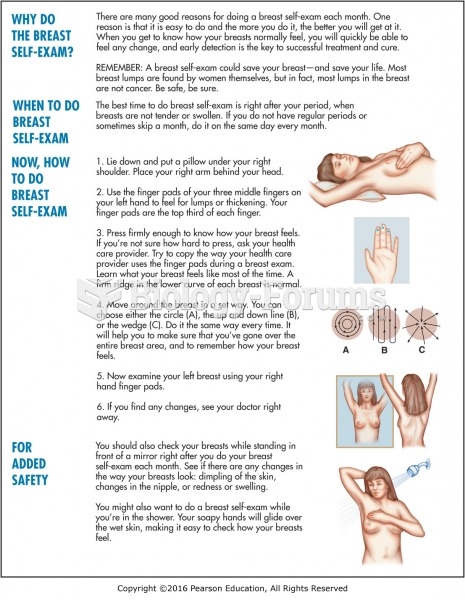|
|
|
The immune system needs 9.5 hours of sleep in total darkness to recharge completely.
Eat fiber! A diet high in fiber can help lower cholesterol levels by as much as 10%.
The eye muscles are the most active muscles in the whole body. The external muscles that move the eyes are the strongest muscles in the human body for the job they have to do. They are 100 times more powerful than they need to be.
Everyone has one nostril that is larger than the other.
Though newer “smart” infusion pumps are increasingly becoming more sophisticated, they cannot prevent all programming and administration errors. Health care professionals that use smart infusion pumps must still practice the rights of medication administration and have other professionals double-check all high-risk infusions.






